“According to the United Nations Educational, Scientific and Cultural Organization (UNESCO,) in Burkina Faso, whereas 92.93% of female children (ages 6-11 years) are enrolled in elementary school, only 37.58% remain enrolled in secondary school (Age 12-18 years.) By the time of college (Age 19-23 years,) only 4.09% of women are still in school… In this present situation, a predictable almost certain future for the girls affected by those factors is early marriage, poor health outcome, financial hardship, subordination, and stagnation.” – an excerpt from the Sahel Sage website
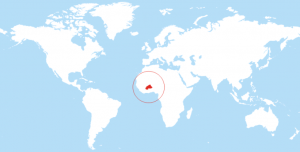
Meet the graduate
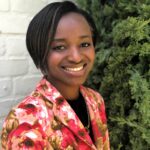
“The moment we say ‘yes’ to something, then it’s a bigger context than it was. It’s kind of like you expand, it’s uncomfortable; then you expand, it’s comfortable. And then something comes and you reach for even bigger. And there might be a tug-of-war, but then you yield to it, and you expand, and you’re there.”
That’s Fatimata Sanogo, a Landmark graduate living in Los Angeles, California, who recently sat down with Landmark Forum News to talk about what she’s up to in the world. Aside from her history with Landmark, Fatimata is currently a doctoral candidate at USC with a focus on epidemiology. And a published author. And a yoga instructor. And, as a result of her participation in the Self-Expression and Leadership Program, she is also the founder and CEO of Sahel Sage, a nonprofit organization committed to supporting the educational futures of adolescent women and their families in the Sahel region of West Africa’s Burkina Faso. Fatimata is a woman who is saying YES to possibility.
Fatimata Sanogo takes The Landmark Forum
Fatimata was born and raised in Burkina Faso, her home until she moved to the United States in 2010 to pursue a bachelors in biochemistry. In sharing how she got from that moment to founding her nonprofit, Fatimata begins with the friend who first told her about Landmark:
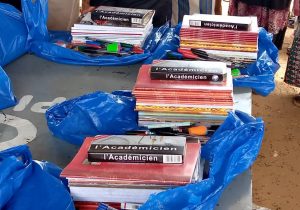
“There was something about her–every time I interacted with her, she left me bigger. And just feeling alive. So I expressed that to her and said, ‘Your knowledge is incredible, and you add so much to my life; I love speaking with you!’ She said, ‘Well, thank you! If there’s anything I would ever advise or tell you that made the most profound difference in my life, it’s Landmark.’ And I said, ‘Wow, what a beautiful name! I’ve never heard of it; Landmark?’ [Laughs] Anyway, so fast forward–I went on that year to do The Landmark Forum.”
Fatimata says she ended her Forum with the clear thought of, “‘Oh, my gosh, this is it. I can serve every human being on the planet, and there can be world peace in my lifetime!’” Her experience brought her back to the memory of a promise she made herself as a young girl whose mother worked with NGOs in West Africa:

“When I was 10 years old, my mom was working in a village, and she took me there with her. I remember that it was a very hot day; we sat under a tree, and I was reading a book. There was a girl about my age from the village, and she came up right next to me, right near my shoulder, and she was looking with her eyes wide open at the book I was reading. I thought for a moment, ‘This is weird,’ and then I realized–‘Oh, my gosh, she cannot read!’ So she was really fascinated by my book. And I got that she might never be able to read. What’s life like that? To go to the doctor and not know what the prescription says–for your whole life. What would life be like for her children? And I just knew, I promised myself that I was going to start a nonprofit one day, and that nonprofit was going to be about supporting women’s education in Africa.”
Why Sahel Sage makes a difference
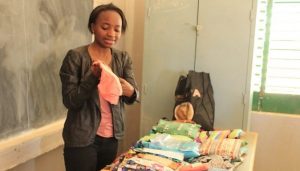
Even though over 90% of female children in the region attend elementary school, 60% of those girls will have dropped out by 7th grade. “That’s a huge amount,” Fatimata says, “and it’s due to the lack of finances, but also, puberty is a big issue. Puberty is different for boys and girls, because with puberty, girls get their periods. So here they are, bleeding every month, and not having basic menstrual hygiene available, like pads.”
On her recent trip to the region, Fatimata sat down with several different girls to discuss their experiences:
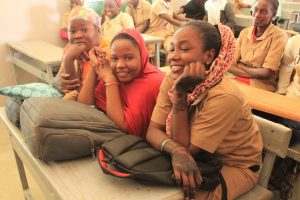
“One of the girls told me, ‘Well, when I have had my period for the last couple years, I haven’t had pads. So I use is piece of cloth if I can. If I can’t, it has to be my own clothing that I have to use. But I’d rather stay home, especially on my heavy days.’ And I said, ‘Every month?’ And she said yeah. When I asked why, she said, ‘Well, because of discomfort. And even if we find a piece of cloth, and we go to class, it’s just not clean. And we get called out.’ The teacher may even send the girls home because they don’t smell good. So there is both embarrassment and shame feelings… Even when it’s an exam day, they will often miss the test and not get to be there. I just really saw the need. And so that’s how we started.”
Sahel Sage looks to see what’s missing that will allow adolescent women in Burkina Faso to continue their educations beyond elementary school and then finds ways to fulfill those needs, Fatimata explains. Every $300 Sahel Sage raises provides the menstrual hygiene, tuition, school supplies, transportation, and food needs for one local girl for an entire year. Fatimata’s mother, Fadima Sanogo, is one of her team members, and they are currently developing a summer vocational project for the girls to learn advanced cooking, sewing, cattle domestication, and infant care skills so that they can both better provide for themselves and also help meet the needs of their communities. “This is the fulfillment of a promise I made to myself as a little girl, almost 18 years ago now…[and] it will become a means of financial freedom for these women.”
What it takes to be UP TO something
“One of the biggest breakdowns for me was ‘I don’t have time for this!’” Fatimata shares with a laugh. “The moment I said ‘yes’ to a nonprofit, there was a breakdown.” But instead of being stopped, Fatimata decided to take things on in a way she never had before: “One of the things that I discovered along the way is just time management…I was someone who never had a calendar; I could just manage things. Now I have a calendar!”
Equally important to her relationship with time, Fatimata says, was the realization that she couldn’t do it alone. “I cannot be the founder and CEO and secretary–it’s just not going to work! So I’ve got to empower people.” People like Sahel Sage’s executive Vice President, Shannon Potter, “who is just as passionate about our work as I am. And now SHE’S a Landmark graduate! Yay!” The difference that Sahel Sage is making is due to the partnerships and commitments of its team, and Fatimata is very clear: “When I allow others to step into their leadership, then we are big together.”

Fatimata is committed to her life and to the lives of young women a continent away whom she is determined to see succeed. In completing the conversation about Sahel Sage, she says, “It’s just so rewarding because the breakthroughs are there, and so are the differences I’m making… I’m just dancing with life, and having a foundation of integrity. Always always always. I’m just living inside of that.”
—
More information about Sahel Sage is available on the organization’s website and on their Facebook page.

—
Landmark Graduates around the world are up to some amazing things. Want to read more inspiring SELP stories? Check out the main Landmark Forum News page for transformative tales from Landmark Graduates worldwide.


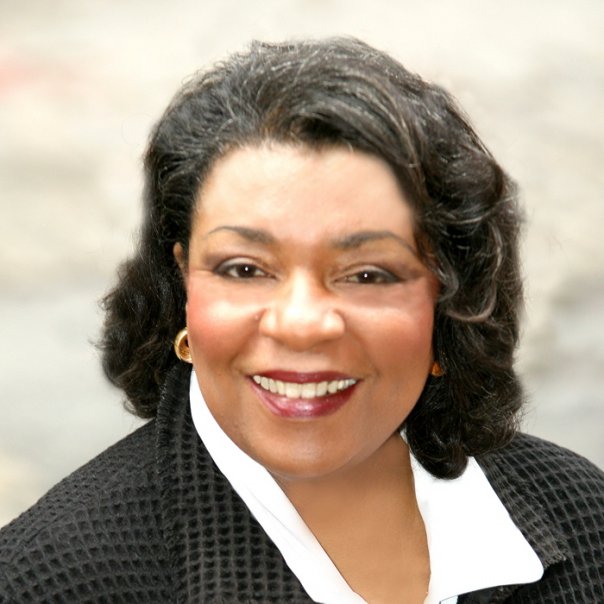
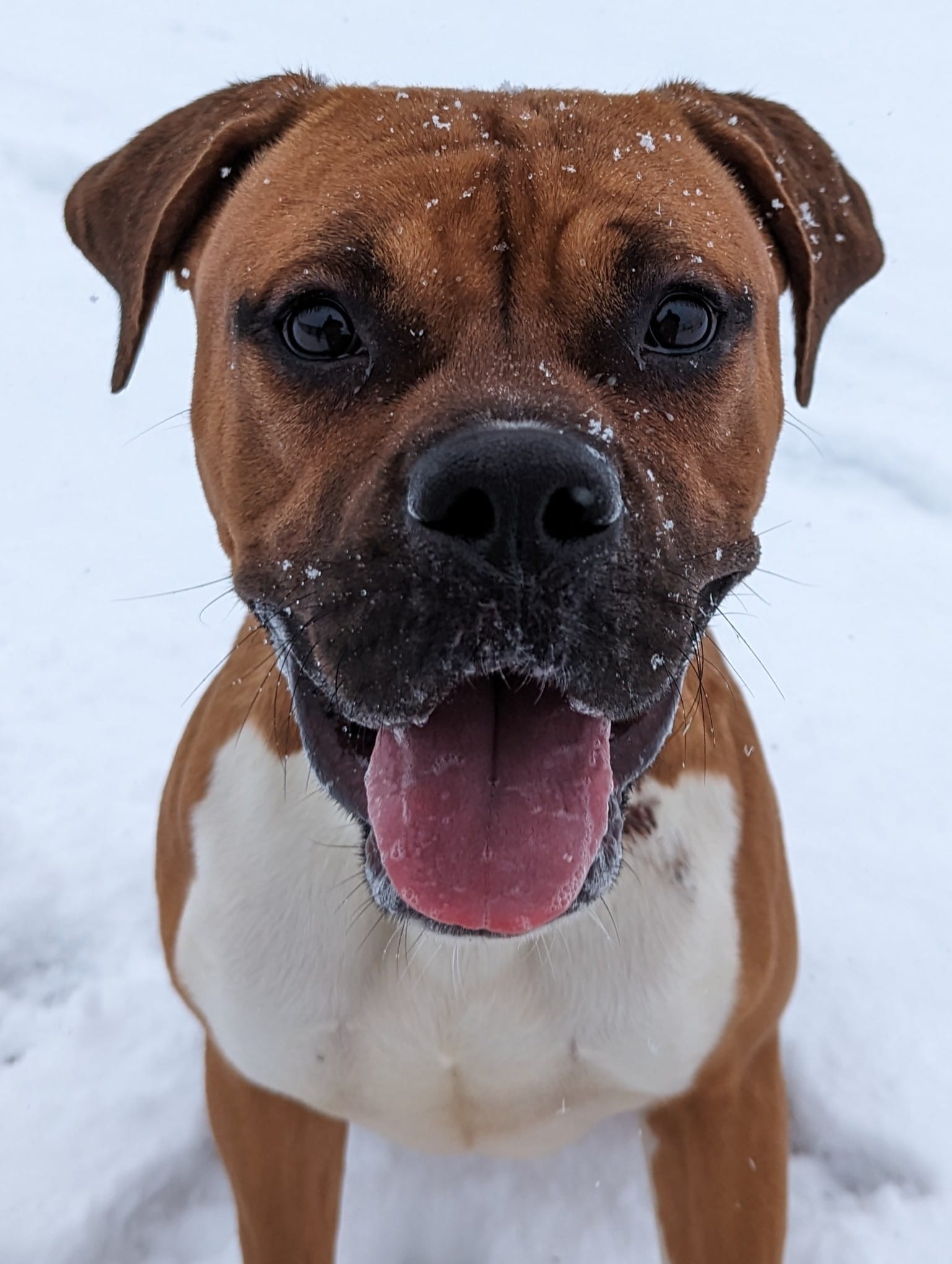
2 comments
Wonderful to hear about your project, Fatimata!
Thought you’d be interested in this company called Unipads. They are also committed to empowering young girls and women. I heard about them in a documemtary I saw a few years ago called Not Bisiness As Usual.
Here’s Unipads wensite I found by google searching them:
https://unipads.in/
All the best to you and the difference you make to young women and their futures.
Very good.